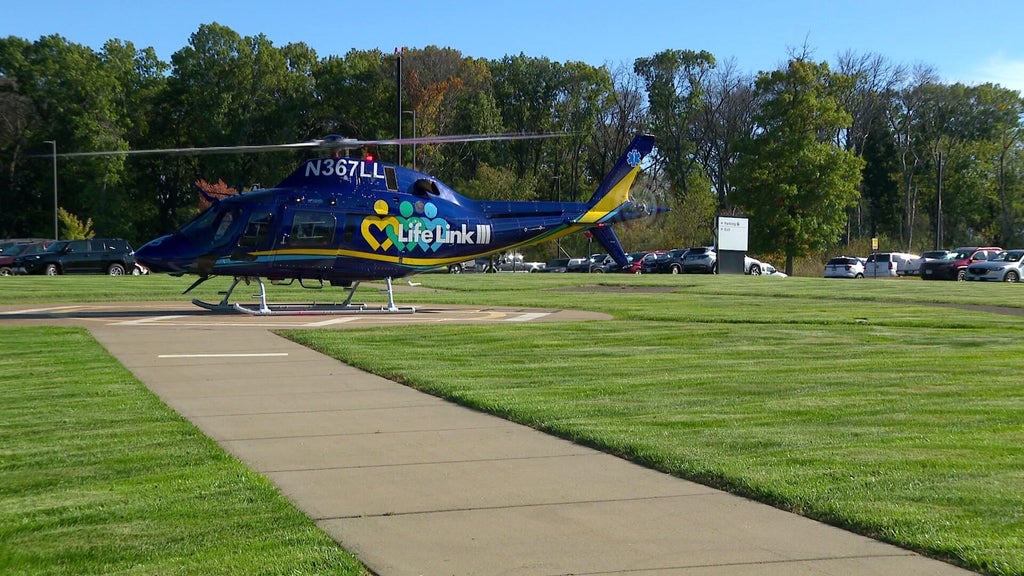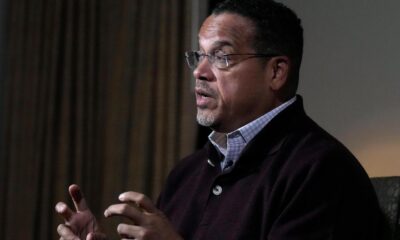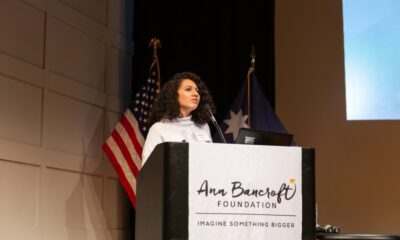Health
New Helicopter Program Enhances Cardiovascular Care in Rural Minnesota

A new initiative by M Health Fairview aims to improve survival rates for cardiac arrest patients in rural Minnesota through a helicopter-based program that delivers advanced medical care directly to remote emergency departments. This program utilizes extracorporeal membrane oxygenation (ECMO) technology, which temporarily takes over the functions of the heart and lungs, providing critical support when a patient’s heart stops.
For many years, ECMO has been confined to major hospitals in the Twin Cities. Now, the new program allows for rapid transportation of this lifesaving equipment and specialists to facilities like Fairview Lakes Medical Center in Wyoming, Minnesota. Dr. Jason Bartos, a cardiologist with M Health Fairview at the University of Minnesota Medical Center, emphasized the importance of this service: “For the last decade within the Twin Cities metro area, we’ve been providing ECMO and ECPR for patients with cardiac arrest that does not respond to standard treatments.”
The urgency of cardiac emergencies cannot be overstated. Studies indicate that patients receiving ECPR, a procedure used during cardiac arrest, have a survival rate of approximately 43%, significantly higher than the 1% survival rate associated with standard therapies. “ECPR is extremely time dependent,” Bartos noted. “Every minute we have, we lose almost 2.5% more people with every minute that passes by.”
To address this critical need, M Health Fairview has collaborated with Life Link III to establish a mobile ECMO team. This team is equipped to land at rural hospitals, initiate the procedure, and subsequently airlift patients back to the University of Minnesota Medical Center for comprehensive care.
At Fairview Lakes, nurse manager Liz Asanovich described how the new program fills a vital gap in emergency care. “Now that help comes to us, we are able to assist people on the worst day of their life and bring that equipment to them,” she said. Preparations are underway, with dry runs and simulations being conducted to ensure that hospital staff and flight crews are ready for real emergencies.
Asanovich expressed confidence in collaborating with the ECMO specialists, saying, “They did reassure us that I didn’t need to know how to run their ECMO equipment. I simply need to provide a venue so that they can bring their specialty and do the work.”
M Health Fairview anticipates expanding this program to additional rural sites in the coming months, further extending advanced heart and lung support to patients who might not survive otherwise. Through innovations like this, healthcare providers are making strides to improve emergency care accessibility, significantly impacting the lives of individuals in rural communities.
-

 Technology5 months ago
Technology5 months agoDiscover the Top 10 Calorie Counting Apps of 2025
-

 Technology2 weeks ago
Technology2 weeks agoOpenAI to Implement Age Verification for ChatGPT by December 2025
-

 Health3 months ago
Health3 months agoBella Hadid Shares Health Update After Treatment for Lyme Disease
-

 Health3 months ago
Health3 months agoAnalysts Project Stronger Growth for Apple’s iPhone 17 Lineup
-

 Health3 months ago
Health3 months agoErin Bates Shares Recovery Update Following Sepsis Complications
-

 Technology5 months ago
Technology5 months agoDiscover How to Reverse Image Search Using ChatGPT Effortlessly
-

 Technology3 months ago
Technology3 months agoElectric Moto Influencer Surronster Arrested in Tijuana
-

 Technology2 months ago
Technology2 months agoDiscover 2025’s Top GPUs for Exceptional 4K Gaming Performance
-

 Technology5 months ago
Technology5 months agoMeta Initiates $60B AI Data Center Expansion, Starting in Ohio
-

 Technology5 months ago
Technology5 months agoRecovering a Suspended TikTok Account: A Step-by-Step Guide
-

 Health5 months ago
Health5 months agoTested: Rab Firewall Mountain Jacket Survives Harsh Conditions
-

 Lifestyle5 months ago
Lifestyle5 months agoBelton Family Reunites After Daughter Survives Hill Country Floods





















